Apple planning major (iPhone) product transition by end of September
Specifically, Morgan Stanley analyst Katie Huberty asked Apple Chief Financial Officer Peter Oppenheimer during the call why he was guiding the company to see a 12% revenue decline during the September quarter, which has historically proven to be one of the company's stronger periods.
To this, Oppenheimer commented that the Cupertino-based company has "a lot going on in the fall with iOS 5 and iCloud" in addition to a "future product transition that we will not talk about today" but will have a material impact on the September quarter.
The comments seem to support widespread claims that Apple will introduce its fifth-generation handset sometime during the three-month period ending September 30th. As such, the company guided revenue to $25 billion for the quarter, compared to the $28.57 billion it reported during the June quarter, under the expectation that iPhone sales will slow sometime over the next 10 weeks as consumers begin anticipating the launch of the new handset.
On average, industry watchers expect Apple to introduce the new handset during or by the time the company holds its annual music and media event, which has traditionally taken place during either the first or second week of September. However, at least one recent report suggests an announcement could come ">as early as mid-August
To date, very few details regarding Apple's plans for the next-generation iPhone have surfaced outside of expectations that the handset will adopt the company's A5 processors, a dual-mode Qualcomm-powered baseband chip for operating on both GSM and CDMA networks, and an updated 8 megapixel camera.
Since the touch-screen handset's inception four years ago, Apple has chosen to transition to new iPhone models closer to the end of the June quarter than the September quarter. However, this year's shift towards a transition closer to autumn is believed to have stemmed from a number of factors, such as the need to repurpose iPhone engineers away from the iPhone 5 project and onto the iPad 2 earlier this year so it could push the new tablet device to market ahead of competitors' offerings making their market debut around the same time.
The shift towards a roll-out later in the September quarter will also allow Apple to fuse its CDMA and GSM iPhone models into a single world-phone release that will be powered by iOS 5 and run on the majority of the world's wireless carriers without individual software or hardware considerations.
 AppleInsider Staff
AppleInsider Staff

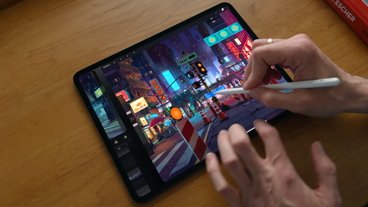
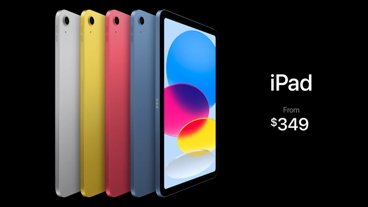

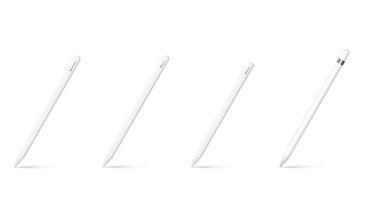







 William Gallagher
William Gallagher
 Mike Wuerthele
Mike Wuerthele

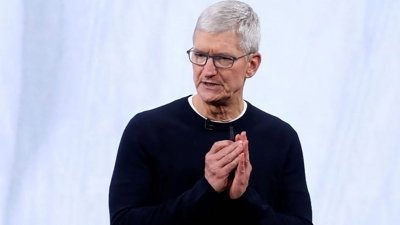
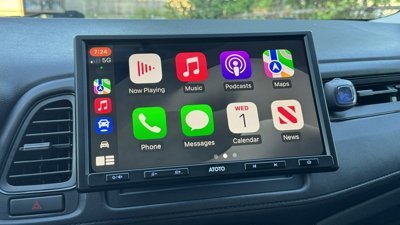
 Wesley Hilliard
Wesley Hilliard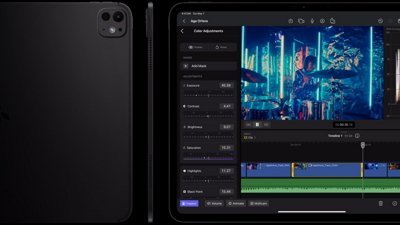

 Mike Wuerthele and Malcolm Owen
Mike Wuerthele and Malcolm Owen








34 Comments
Drop a dual-core processor and an 8MP camera into it and it'll be a day one purchase for me.
Apple during its quarterly conference call on Tuesday revealed that it will undergo a future product transition' sometime during the current September quarter but declined to disclose any formal details about the move which almost certainly pertains to the launch of the company's next-generation iPhone handset.
Specifically, Morgan Stanley analyst Katie Huberty asked Apple Chief Financial Officer Peter Oppenheimer during the call why he was guiding the company to see a 12% revenue decline during the September quarter, which has historically proven to be one of the company's stronger periods.
To this, Oppenheimer commented that the Cupertino-based company has "a lot going on in the fall with iOS 5 and iCloud" in addition to a "future product transition that we will not talk about today" but will have a material affect on the September quarter.
The comments seem to support widespread claims that Apple will introduce its fifth-generation handset sometime during the three-month period ending September 30th. As such, the company guided revenue to $25 billion for the quarter, compared to the $28.57 billion it reported during the June quarter, under the expectation that iPhone sales will slow sometime over the next 10 weeks as consumers begin anticipating the launch of the new handset.
On average, industry watchers expect Apple to introduce the new handset during or by the time the company holds its annual music and media event, which has traditionally taken place during either the first or second week of September. However, at least one recent report suggests an announcement could come as early as mid-August, as Apple has put out calls seeking temporary "full-time iPhone Sales Staff for an exciting project" from August 16th till October 29th "within key retail stores."
To date, very few details regarding Apple's plans for the next-generation iPhone have surfaced outside of expectations that the handset will adopt the company's A5 processors, a dual-mode Qualcomm-powered baseband chip for operating on both GSM and CDMA networks, and an updated 8 megapixel camera.
could also be a next gen Ipad as they seemed to hint towards that as well.. they could possibly be trying to put it on a six month refresh just like the macbook line typically is since its outpacing mac sales already!
All band phones or advanced voice control
Drop a dual-core processor and an 8MP camera into it and it'll be a day one purchase for me.
Processor... m'eh... better camera oh yea... especially over my 3GS.
Waiting patiently... tap, tap, tap, tap, tap. Is it here yet? Tap, tap, tap, tap. Is it here yet?Tap, tap, tap, tap..................
Sept Quarter. Is that July thru Sept?
IOS5, Apple has said Fall release. Fall begins Sept 21st.
Obviously Apple would like IOS 5 with iPhone update.
Hmmm..... Sept 21/28th launch for both iPhone and iOS seems to meet all Apple public announcements.